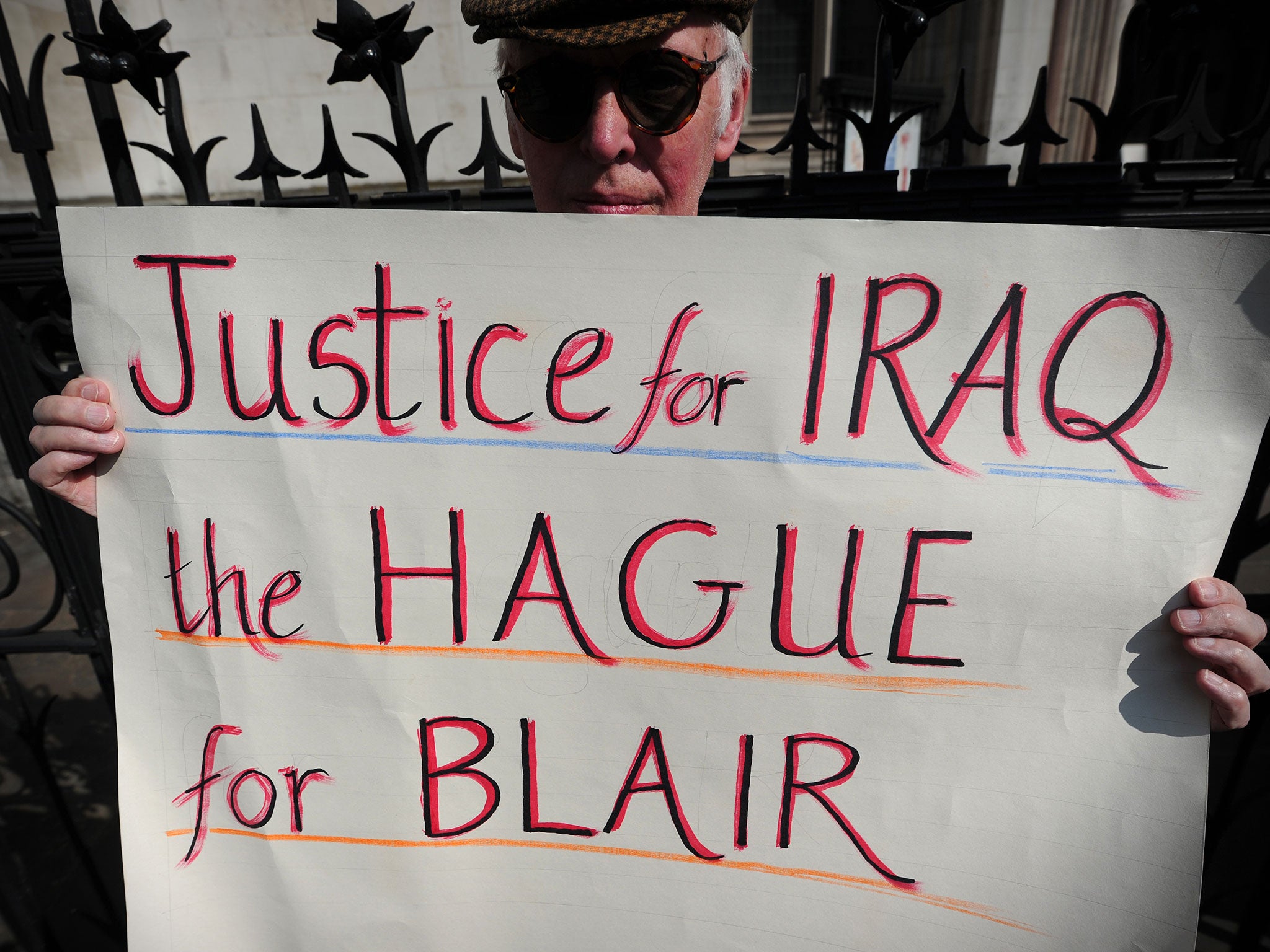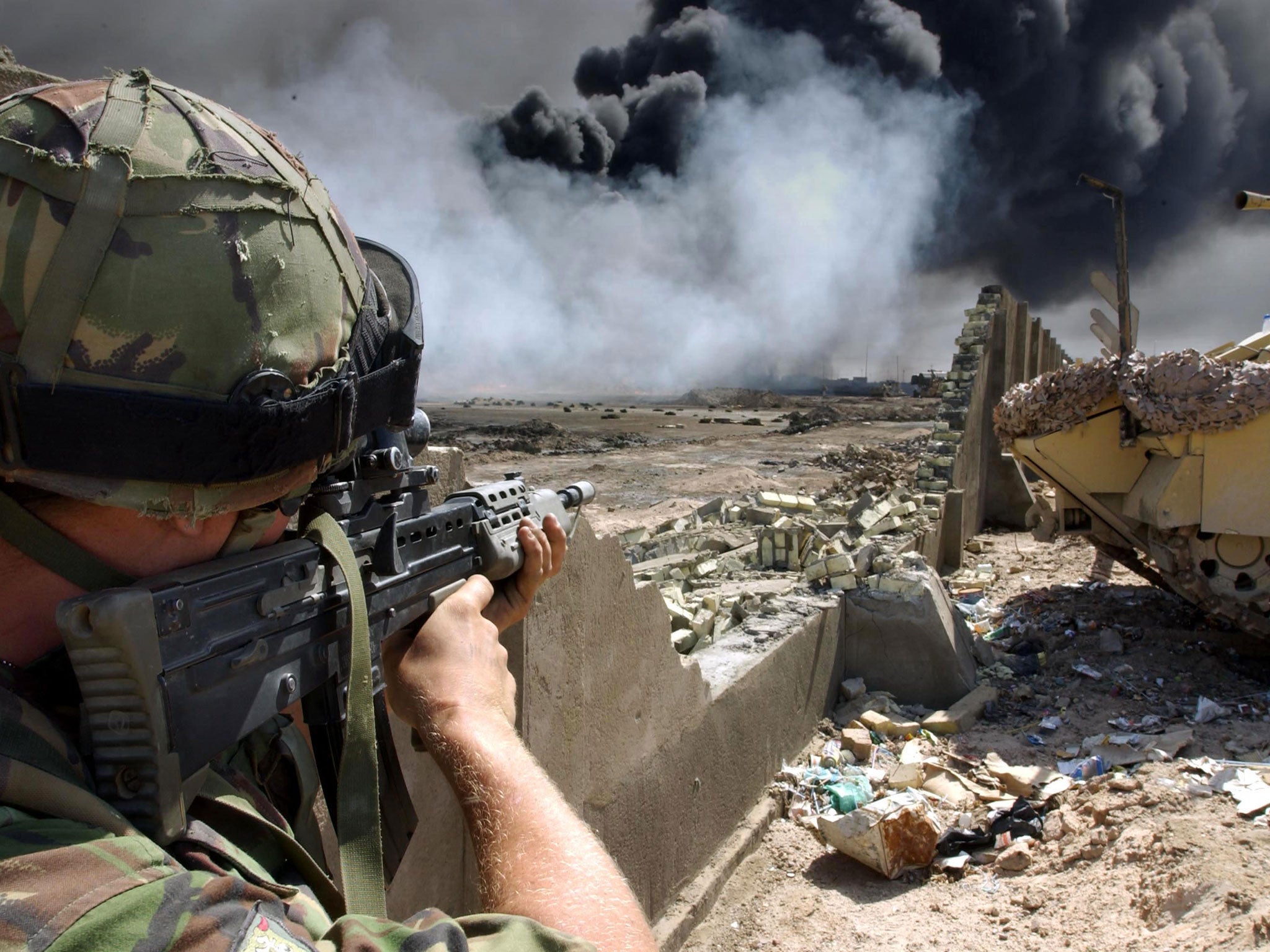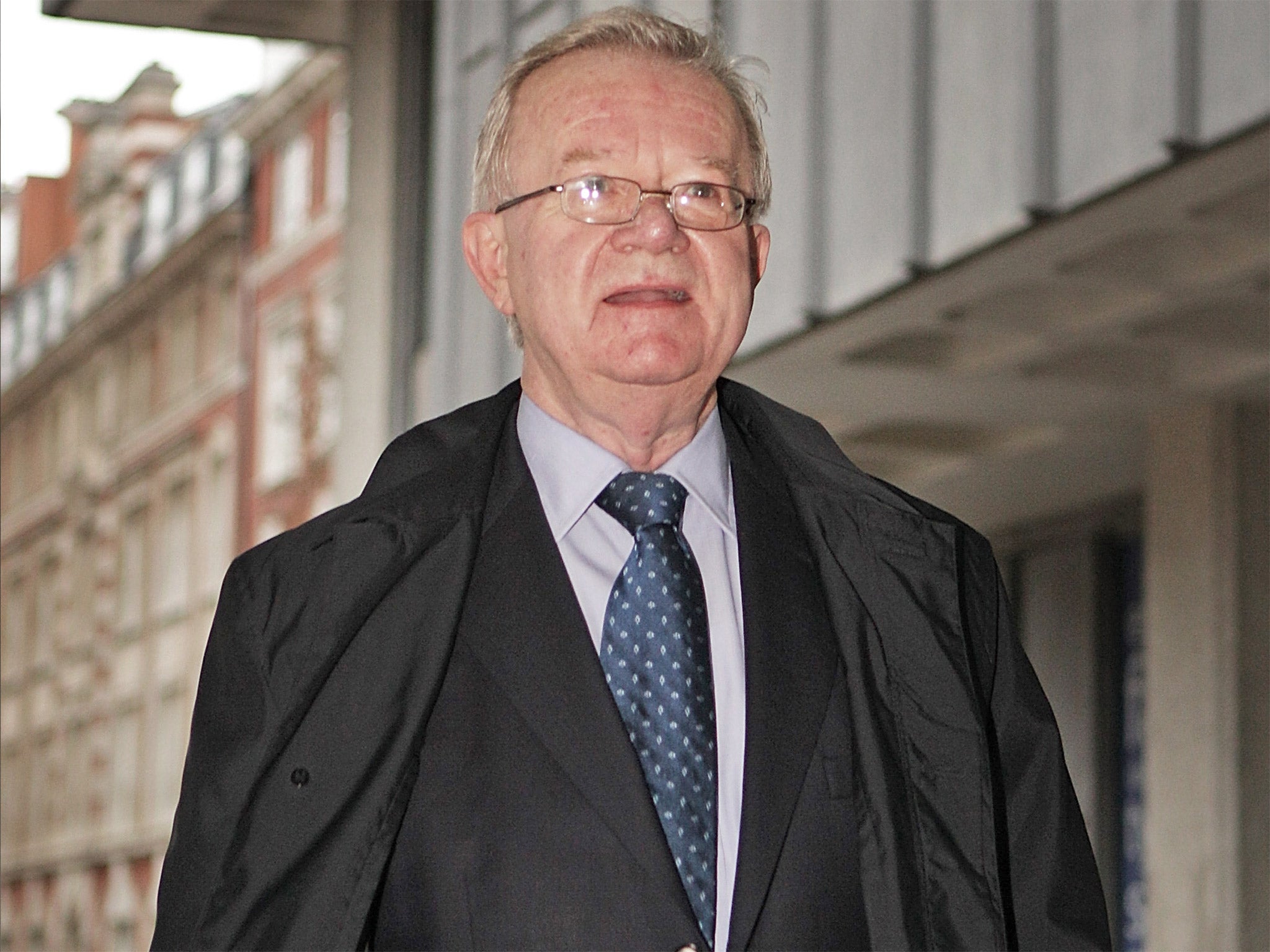Iraq war: The week the spectre of the conflict returned to the front line of British politics
So why does it still exercise such an emotional hold over us?

Twelve years after British forces marched into Basra and six years after the vast majority of them left, the spectre of the Iraq war still looms large over the Westminster body politic. Those who were instrumental in taking the decision to invade – Tony Blair, Gordon Brown, Jack Straw – have all shuffled off the stage. Those who drew up the botched invasion plans and advised ministers have almost all retired, while the most contentious aspect of the decision to go to war has already been covered by two previous inquiries.
So why does it still exercise such an emotional hold over us? Why does an announcement that Jeremy Corbyn would apologise on behalf of the Labour Party for their role in the invasion make front page news? And why do rows about the publication of the Chilcot report (which we all know will happen eventually) continue to attract such a huge amount of public interest?
To answer these questions you have, in part, to go back to before the Iraq war started. Looking at polls from that period, it is striking to see the extent to which the conflict represented the moment that the British public fell out of love with Tony Blair and the New Labour project. In late 2001 and 2002, Labour was seeing support of more than 50 per cent. But by June 2003 the Conservatives were recording their first poll leads since Labour took power in 1997.
But this was a collapse of the left – not a resurgence of the right. In September 2003, six months after the invasion, the Conservatives were polling 32 per cent support (not much up on its 2001 figures), Labour 28 per cent and the anti-war Lib Dems 29 per cent.

Blair may have gone on to win in 2005, but this marked the moment that the extraordinary electoral coalition he had created began to fracture beyond repair.
Many Labour voters felt – and some still do to this day – viscerally betrayed by Blair’s disregard for their opinions (and their marches) in the run up to the war. They had believed in him. He had spurned them for a right-wing US President. Analogies with relationship break-ups are perhaps inappropriate – but not that far from the mark.
No doubt if the invasion and its aftermath had been successful this now would have been a footnote of history. But it was not. Iraq was a bloody, slow-burning disintegration with intrinsic sectarian and religious problems that have still not been solved to this day.
David Cameron said of the delay in publishing Chilcot’s long-awaited findings: “We want this inquiry finished, it’s for the good of the families, for the good of the country.”
But Chilcot would not be so relevant today if we were not still discussing whether British troops should play a part in fighting Isis in Iraq and Syria.

Many on the left have high expectations that his findings will be damning of Blair and will uncover new evidence of nefarious secret goings on with George Bush.
Personally, I think that is unlikely. I suspect we know as much as we ever will about the political dealings with the Americans. Where I suspect Chilcot will be interesting – and potentially damning – is on the military, diplomatic and intelligence advice that was given in the lead up to the war.
In addition the Ministry of Defence, Foreign Office and Department for International Development may come in for criticism for failures in the aftermath in not making a sufficient and competent effort to rebuild the country.
It is important to remember that Chilcot is himself a former senior civil servant with a knowledge and understanding of the processes of Government. Where those processes were not followed – for whatever reason – is likely to come under most scrutiny.
Join our commenting forum
Join thought-provoking conversations, follow other Independent readers and see their replies
Comments